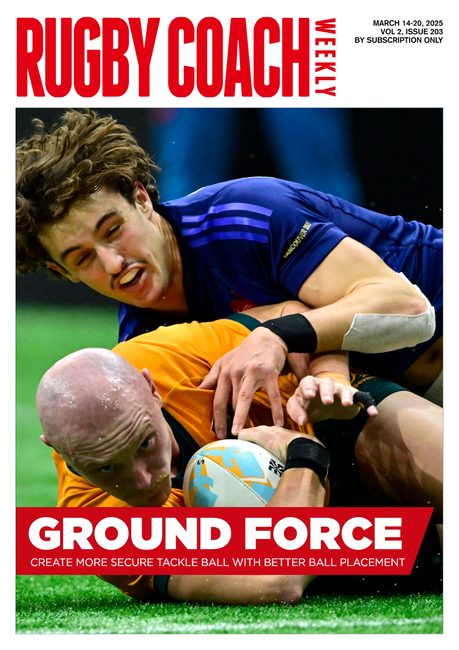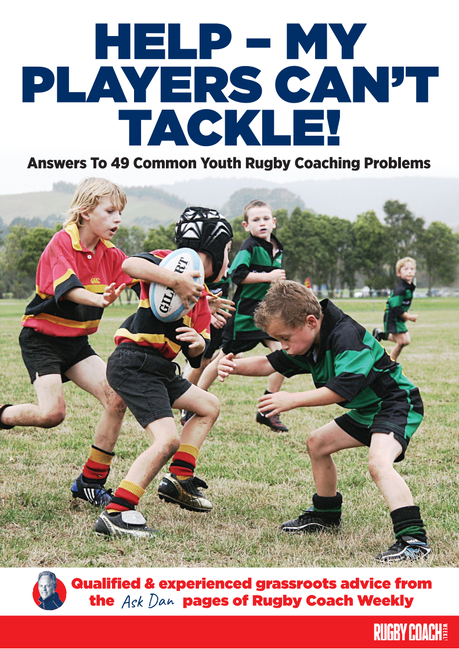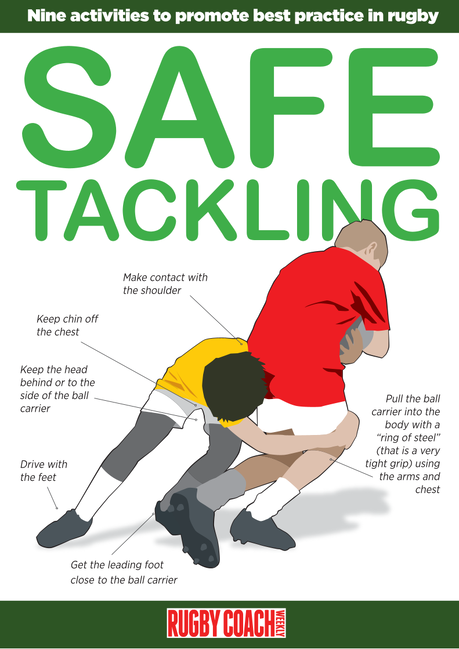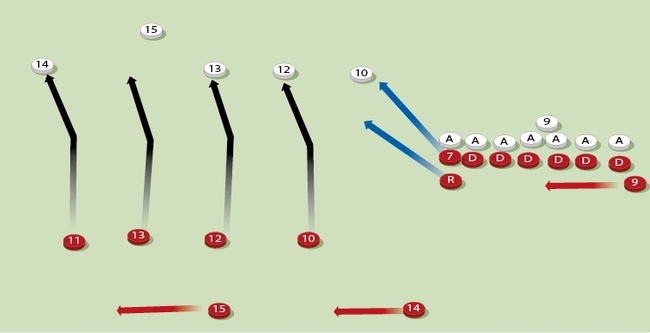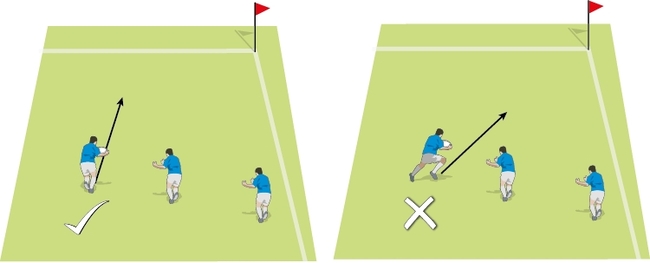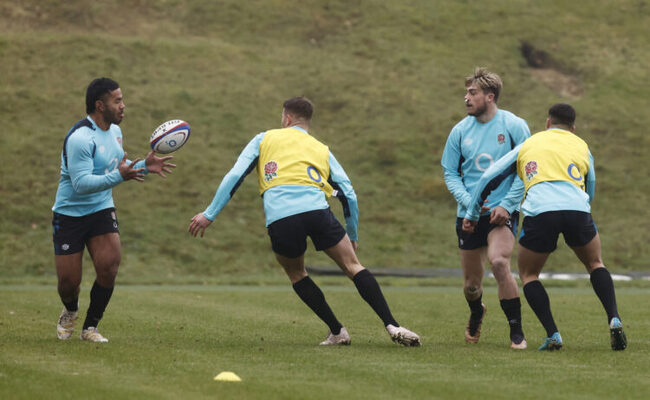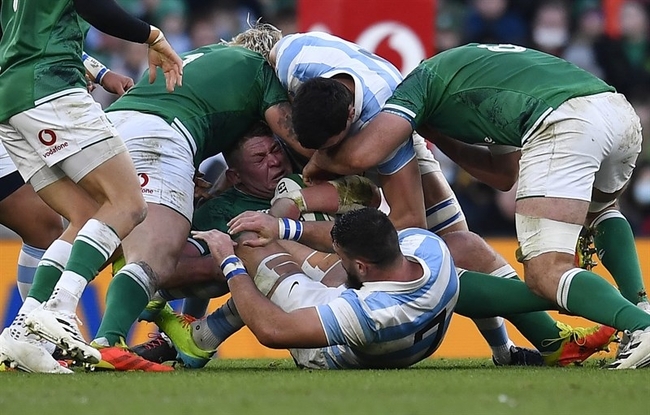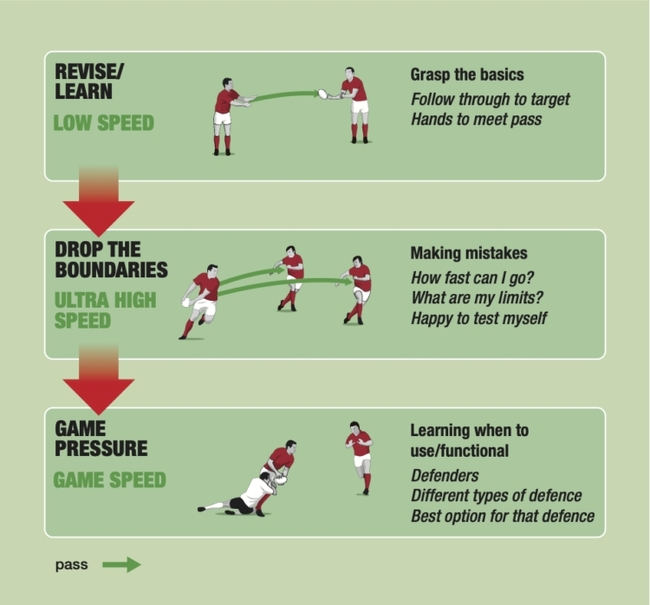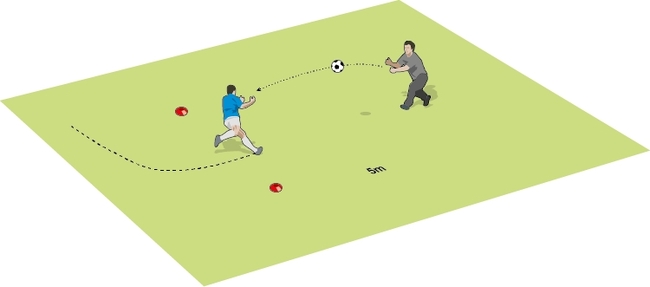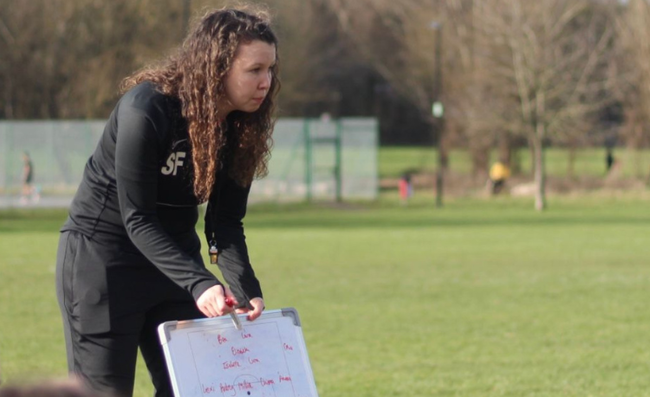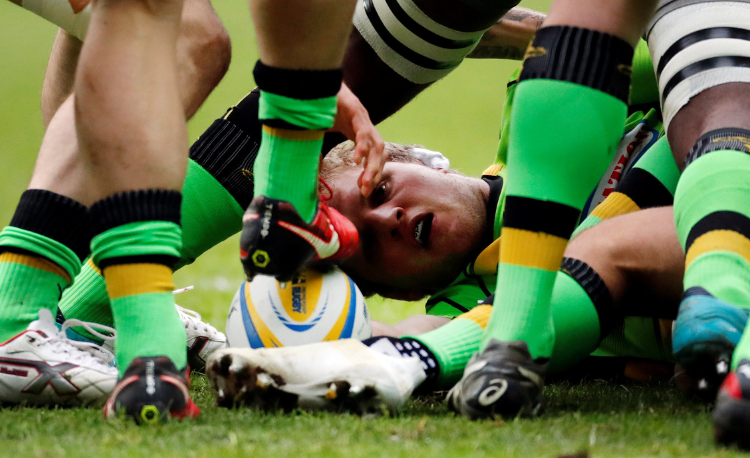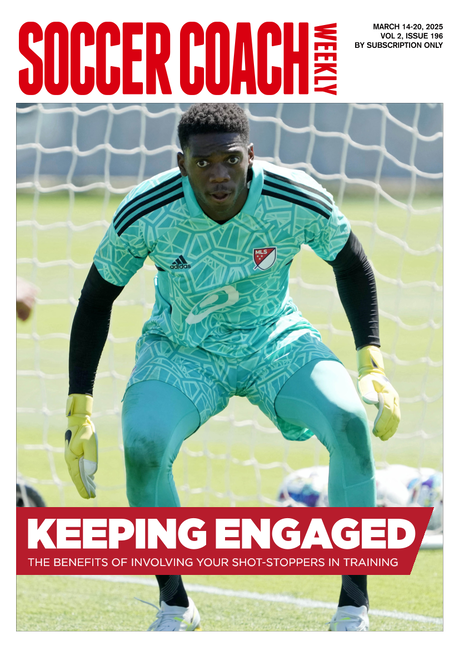Ask Dan “Should you set goals for weak tacklers?”
Our problem is that one of our players, who is not small (quite tall and lean), despite training okay with tackling, during a game just doesn’t commit to a tackle. He will be running along in a good position and never move into the tackle.
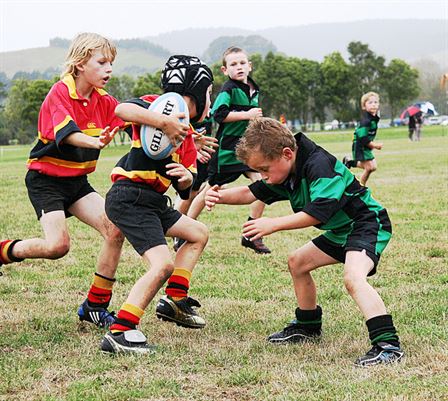
QUESTION
I help coach an Under 8’s team in Brisbane, Australia. In the Australian system Under 8’s is the first year of tackling (the two prior years involve two handed tag on the shorts) and most of the kids relish the chance to tackle.
Our problem is that one of our players, who is not small (quite tall and lean), despite training okay with tackling, during a game just doesn’t commit to a tackle. He will be running along in a good position and never move into the tackle.
We’re not sure how to get him more involved - our club ethos is equal time for every player and we follow this, but he is just not contributing anything at all on the pitch and the other players are getting annoyed about it.
We’ve talked to him about getting involved, we teach him correct tackle technique and do lots of encouraging but to no avail.
My idea is to incentivise him and another reluctant tackler by giving them a target number of tackles to make in a half so that they have a definite goal to strive for.
Also I am considering for our next game which is against a weaker team who we have already played this season (home and away series) making the reluctant tacklers the primary lead tacklers.
We will tell them and all the other players that they are going to be the key defenders so to give them the opportunity to hit the ball carrier first so that we can get them to overcome their reluctance and stop them from leaving it to other players to do.
ANSWER
As you might guess, this is a familiar problem for many coaches of this age group and above.
First, it sounds like you are making many of the more informed decisions on improvement:
- Equal time for all the players - they learn so much from playing in real games.
- Encouragement - plenty of educational evidence to suggest that positive reinforcement leads to intrinsic motivation and better technique.
- Emphasis on correct technique - this will build confidence in the player and he will learn from his successes.
Your goal setting has pros and cons:
- Pros - goals provide a focus. Cons - but lead to disappointment if they are not achieved.
- Pros - achievable goals provide something to build on. Cons - but if they are making no tackles, even one tackle is a massive goal.
For me, at this age, goal setting is not really something they take on board as much as we might as adults.
You are also considering making them a focal point against a weaker team. Research (looking at young tennis players) suggests that this can be demotivational as well. This is because the players think...”you are suggesting this lot are easier to tackle, what happens if I can’t even tackle this lot”.
In my experience, learning to tackle at this age does not conform to normal educational and coaching standards. I would suggest the following approach:
- Take away the emphasis on the player to “make” tackles in games.
- Let his peer group lead the encouragement for him to make tackles, but don’t let them goad him into tackling.
- Be patient with the three points that you do in training.
- Be patient with the player and still let him have equal game time.
- Start the game with the player, rather than have him come on when the others have their minds warmed up.
And this is what really worked for the boys I have coached - lots of low-level rough and tumble games in training where there is no hiding place. Often boys who don’t have older brothers (or sisters) are not used to this.
Overall, there is no quick fix. Sometimes a boy will suddenly make the change.
Related Files
Premium Books
Newsletter Sign Up
Coaches Testimonials

Gerald Kearney, Downtown Las Vegas Soccer Club

Paul Butler, Florida, USA

Rick Shields, Springboro, USA

Tony Green, Pierrefonds Titans, Quebec, Canada
Subscribe Today
Be a more effective, more successful rugby coach
In a recent survey 89% of subscribers said Rugby Coach Weekly makes them more confident, 91% said Rugby Coach Weekly makes them a more effective coach and 93% said Rugby Coach Weekly makes them more inspired.
Get Weekly Inspiration
All the latest techniques and approaches
Rugby Coach Weekly offers proven and easy to use rugby drills, coaching sessions, practice plans, small-sided games, warm-ups, training tips and advice.
We've been at the cutting edge of rugby coaching since we launched in 2005, creating resources for the grassroots youth coach, following best practice from around the world and insights from the professional game.


